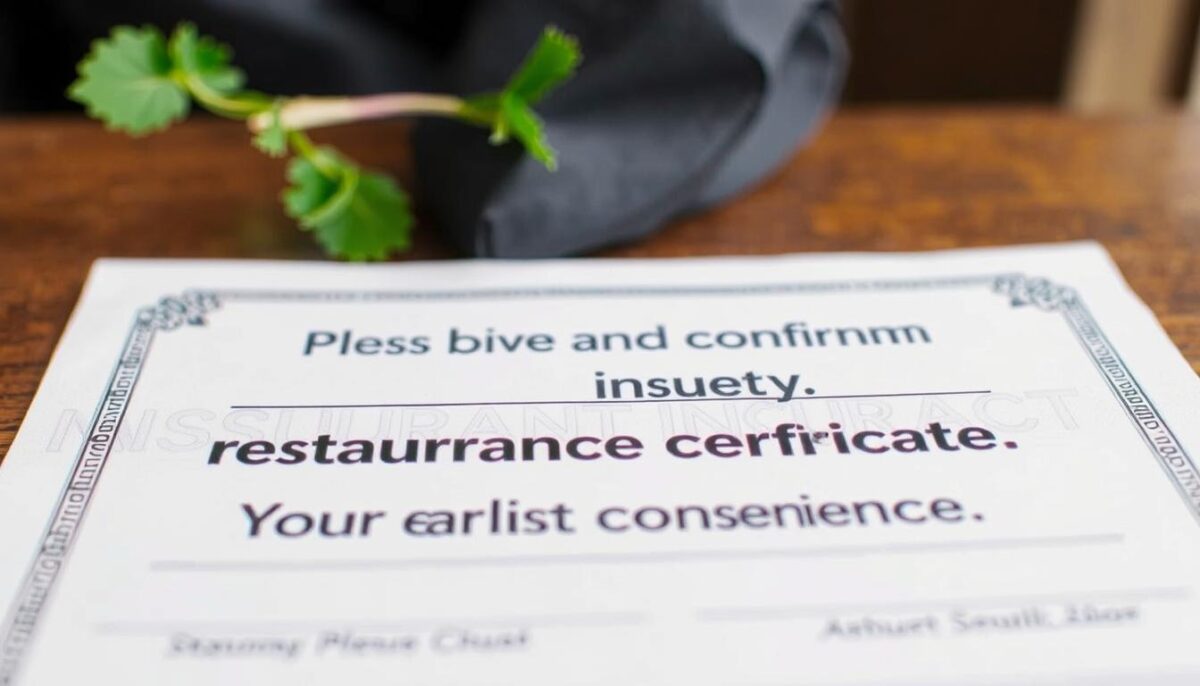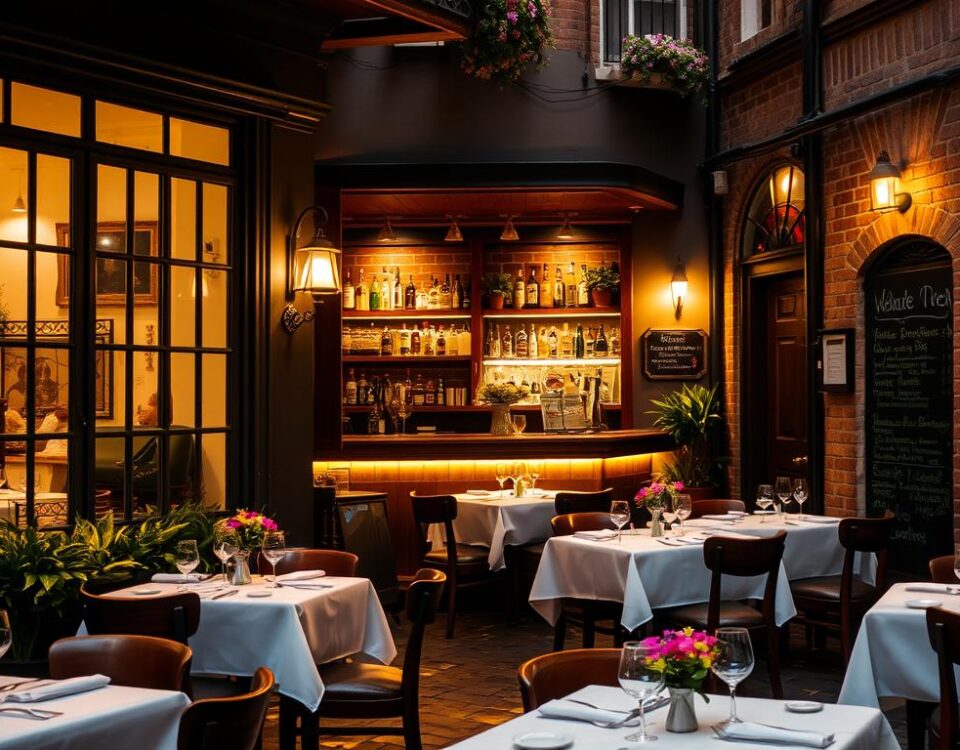
6 Hidden Risks Restaurant Insurance Should Always Cover
July 18, 2025
6 Proven Tips to Save Big on Used Restaurant Equipment
July 19, 2025As a restaurant owner, you’ve likely spent countless hours perfecting your menu and creating a warm atmosphere for your guests. However, despite your best efforts, risks are inherent in any business, and restaurants are no exception.
Did you know that a single liability claim can drain thousands of dollars from your business? In fact, according to industry statistics, many restaurant owners face significant financial losses due to inadequate insurance coverage.
This is where the real cost of insurance traps comes in – silently draining your resources through unexpected claim denials, regulatory penalties, and more. What if you could avoid these costly mistakes and protect your business from financial ruin?
Key Takeaways
- Understand the unique risks facing your restaurant business and the importance of specialized insurance coverage.
- Learn how to identify costly insurance traps that can drain your resources.
- Discover the four major insurance traps that restaurant owners face and how to avoid them.
- Take proactive steps to protect your business from financial losses due to inadequate coverage.
- Gain valuable insights from industry experts on managing business risk and minimizing costly claims.
The Hidden Costs of Restaurant Insurance Mistakes
In the restaurant business, insurance is not just a necessary expense, but a critical investment in mitigating potential risks. Restaurant owners face a myriad of risks daily, from kitchen fires to customer liability claims. The best way to determine if there are any gaps in your insurance is to work with an insurance agent who specializes in Restaurant Insurance.
Why Restaurant Owners Are Particularly Vulnerable
Restaurant owners are particularly vulnerable to insurance mistakes due to the unique challenges and risks inherent in the business. Specialized insurance agents understand these risks and know the right questions to ask to ensure that you don’t have any coverage gaps. For instance, a single uncovered claim can lead to significant financial loss and even business failure.
The Financial Impact of Insurance Oversights
Insurance oversights can have a cascading financial effect on a restaurant business. Uncovered claims can result in immediate costs, long-term damage to supplier relationships, and increased borrowing costs. Moreover, business interruption from an uncovered event can lead to permanent customer loss and market share decline. Proper insurance coverage should be viewed as a business investment with significant ROI potential in risk mitigation.
By understanding the hidden costs of insurance mistakes, restaurant owners can take proactive steps to protect their businesses. This includes working with specialized insurance agents to identify and fill coverage gaps, thereby avoiding the financial devastation that can result from insurance oversights.
Trap #1: Inadequate Coverage Gaps in Your Policy

As a restaurant owner, you’re likely no stranger to insurance, but are you aware of the coverage gaps that could be costing you thousands? Insurance policies are complex documents, and even with a good policy, gaps in coverage can leave you vulnerable to financial loss.
Common Coverage Gaps in Restaurant Policies
Restaurant insurance policies often contain gaps in coverage that can be costly if not addressed. Common gaps include business interruption insurance, which is crucial for maintaining cash flow during unforeseen closures. Other gaps might involve cyber liability, employment practices liability, or equipment breakdown coverage.
Business Interruption Insurance: The Overlooked Necessity
Business interruption insurance is a vital component of a comprehensive restaurant insurance policy. It helps ensure that your business can continue to operate even if you’re forced to close temporarily due to a covered event. Without it, you might struggle to recover lost revenue.
How to Identify and Fill Coverage Gaps
To identify coverage gaps, work with an insurance agent who specializes in restaurant insurance. They can help you make sure your policy covers all potential risks. Ask the right questions to uncover gaps, such as: “Does my policy cover business interruption?” or “Are there any exclusions I should be aware of?”
By understanding your policy and working closely with your insurance agent, you can fill coverage gaps and ensure your restaurant is adequately protected against potential risks.
Trap #2: Misleading Insurance Certificates
One of the most significant insurance traps restaurant owners encounter is the misleading insurance certificate. When an insurance certificate says you have coverage you don’t actually have, you’re still on the hook for uncovered claims, regardless of what the certificate of insurance says.

Why Insurance Certificates Often Misrepresent Coverage
Insurance certificates often misrepresent coverage because they typically only show the declarations page of the insurance policy, not the actual policy details, including endorsements and exclusions. This can lead to a false sense of security for restaurant owners.
For instance, a recent case involved a $3 million claim against the holder of a master services contract. The contractor responsible for the loss didn’t have adequate insurance to indemnify the holder, highlighting the importance of verifying actual coverage.
The Dangerous Gap Between Certificates and Actual Policies
The gap between what’s stated on an insurance certificate and the actual policy can be dangerous. It’s crucial to understand that the certificate is not the policy; it’s merely a summary. The actual policy documents, including all endorsements and exclusions, are what determine your true coverage.
How to Properly Verify Your Coverage
To verify your coverage, follow these steps:
- Request and review complete policy documents, not just the declarations page.
- Look for specific policy language regarding key coverages that are often misrepresented on certificates.
- Request written confirmation from insurers regarding specific coverage questions.
- Address discrepancies between certificates and policies before they lead to coverage disputes.
- Time your verification to coincide with policy renewals and business changes.
- Document your coverage verification efforts to strengthen your position in future disputes.
- Work with insurance professionals who understand restaurant-specific risks and coverage needs.
By taking these steps, you can make sure your insurance coverage matches your needs and avoid the pitfalls of misleading insurance certificates. It’s essential to work closely with your insurance agent to review your insurance policy in detail, ensuring you have the right coverage at the right time.
Trap #3: Restaurant Insurance Traps in General Liability Policies
Restaurant owners often overlook the fine print in their general liability policies, leaving their businesses vulnerable to costly insurance traps. General liability insurance is designed to protect restaurants from various risks, but standard policies can sometimes fall short of providing adequate coverage.
The Fungi and Bacteria Exclusion Problem
One significant issue with standard general liability policies is the fungi and bacteria exclusion. This exclusion can leave restaurants exposed to claims related to mold or bacterial contamination. For instance, if a customer alleges that they became ill due to contaminated food or water at your restaurant, your insurance policy might not cover the claim if it involves bacteria or fungi. To mitigate this risk, consider switching to a combined GL+CPL+professional liability policy that doesn’t exclude losses related to mold or bacteria.

How Standard Policies Fail Restaurant Owners
Standard general liability policies often fail to address the unique risks faced by restaurants. For example, they might not cover claims related to food poisoning or other business-specific risks. To ensure you’re adequately protected, it’s crucial to work with an insurance agent who understands the restaurant industry and can help you identify potential gaps in coverage.
| Policy Feature | Standard Policy | Enhanced Policy |
|---|---|---|
| Fungi and Bacteria Exclusion | Excluded | Included |
| Food Poisoning Coverage | Limited | Comprehensive |
| Professional Liability | Not Included | Included |
Finding Liability Coverage That Actually Protects Your Restaurant
To find liability coverage that truly protects your restaurant, look for policies that address the specific risks you face. Consider a combined policy that includes general liability, commercial property liability, and professional liability. When evaluating insurance options, ask potential insurers about their experience with restaurant businesses and the specific coverage features they offer. A knowledgeable insurance agent can help you navigate the complexities of liability insurance and ensure you have the coverage you need.
When searching for the right insurance policy, consider the following key features:
- Coverage for fungi and bacteria-related claims
- Comprehensive food poisoning coverage
- Professional liability protection
- Business interruption insurance
By being proactive and working with a knowledgeable insurance agent, you can protect your restaurant from costly insurance traps and ensure that you have the coverage you need to succeed.
Trap #4: Regulatory Compliance Issues That Void Coverage

Many restaurant owners are unaware that non-compliance with regulations can void their insurance coverage. Regulatory compliance is a critical aspect of maintaining valid insurance coverage, and failure to comply can lead to significant financial losses.
Antimicrobial Application Requirements
Applying antimicrobials without a license is a serious issue that can have far-reaching consequences. In 16 states, performing antimicrobial applications without the necessary licensing can result in reduced invoices for related charges. Moreover, insurance companies cannot pay for work that is deemed illegal.
Key Requirements: Ensure you have the necessary licenses for antimicrobial applications. Understand the specific regulations in your state regarding antimicrobial use.
How Non-Compliance Can Void Your Insurance
Non-compliance with regulations can void your insurance coverage, leaving your restaurant exposed to significant risks. Insurance policies often include provisions that allow insurers to deny claims arising from regulatory non-compliance.
Consequences of Non-Compliance: Strengthens liability claims against your restaurant by establishing negligence, creates coverage issues, and can lead to financial losses.
To avoid these issues, it’s crucial to maintain thorough documentation of compliance efforts and understand how non-compliance can impact your insurance claim.
Protecting Your Restaurant Business from Insurance Pitfalls
To safeguard their business, restaurant owners need to understand the common insurance traps. The American Insuring Group specializes in Restaurant Insurance, helping owners eliminate gaps in their coverage. By working with experts who understand the industry’s unique risks, owners can ensure they have the right insurance policy in place.
Regular insurance audits and reviews can identify and address coverage gaps before claims occur. It’s also crucial to maintain proper documentation and record-keeping to prevent insurance issues and navigate claims successfully. By investing in proper insurance coverage today, restaurant owners can save money in the long run.
Review your current insurance coverage to make sure you’re protected against the four insurance traps discussed. As a small business owner, it’s essential to prioritize liability coverage and take the time to understand your policies.
FAQ
What are the most common coverage gaps in my policy?
Common coverage gaps include business interruption, equipment breakdown, and cyber liability. Reviewing my policy annually with my insurance agent helps identify these gaps.
How can I verify that my insurance certificates accurately represent my coverage?
To verify my coverage, I request a copy of my actual policy and review it carefully. I also ask my insurance agent to confirm that my certificates match the policy terms.
What is the Fungi and Bacteria Exclusion problem in general liability policies?
The Fungi and Bacteria Exclusion is a clause that limits or excludes coverage for claims related to fungi and bacteria. This can be a problem for my business if I’m not aware of it and don’t have adequate coverage.
How can I ensure regulatory compliance and avoid voiding my coverage?
I stay up-to-date on regulatory requirements, such as antimicrobial application requirements, and work with my insurance agent to ensure my business is compliant and my coverage is valid.
What is business interruption insurance, and do I need it?
Business interruption insurance covers lost income if my business is forced to close due to a covered event. I need this coverage to protect my business from unexpected events that can impact my bottom line.
How can I minimize risks and reduce my liability?
I minimize risks by implementing risk management practices, such as regular equipment maintenance, employee training, and customer safety protocols. This helps reduce my liability and protects my business.



